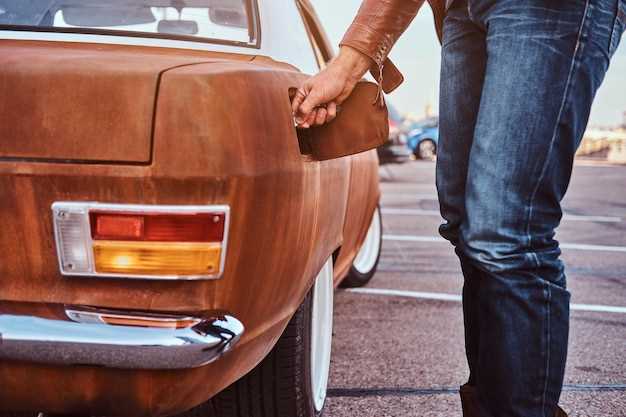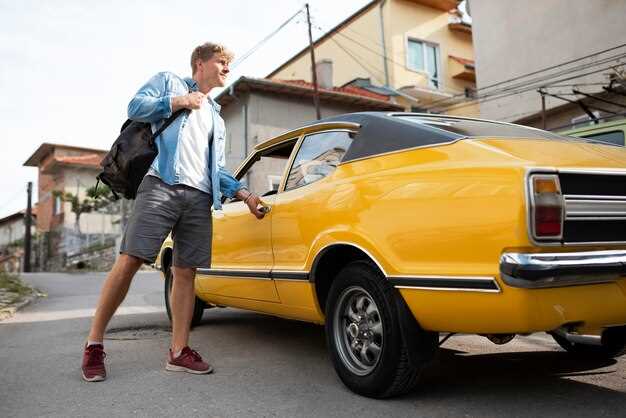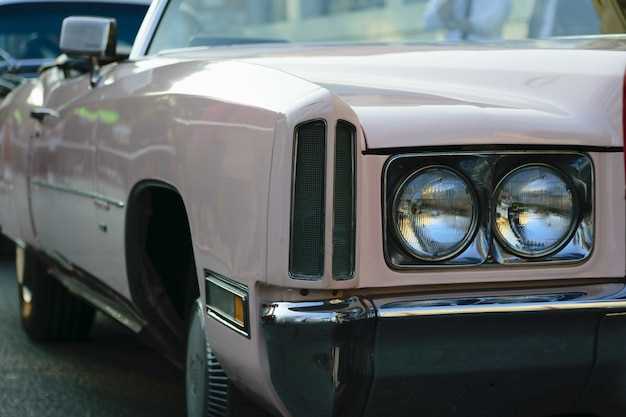

When it comes to purchasing a classic vehicle, the experience can be both thrilling and daunting. A classic car not only represents a piece of automotive history but also serves as a symbol of style and nostalgia. However, the process of buying such a car requires careful consideration and thorough research to ensure that it meets your expectations and budget.
Understanding the intricacies of the classic car market is essential for any prospective buyer. It is crucial to identify what defines a classic vehicle and the various factors that influence its value, such as age, condition, and rarity. By arming yourself with knowledge, you can make informed decisions, avoiding common pitfalls that often lead to buyer’s remorse.
Furthermore, conducting a detailed inspection and verification of the car’s history is paramount. This means checking documentation, service records, and previous ownership to ensure the vehicle’s authenticity and structural integrity. Additionally, engaging with knowledgeable enthusiasts or professionals can significantly enhance your buying experience, allowing you to navigate the classic car landscape with confidence and clarity.
In this article, we will guide you through the essential steps of purchasing a classic car smartly and regret-free, empowering you to enjoy your new vehicle without the anxiety that often accompanies such an investment.
Assessing Your Budget and Financial Options for Classic Cars

When venturing into the world of classic car buying, it’s essential to start with a clear understanding of your budget. Determine how much you can comfortably spend without straining your finances. This should include not only the purchase price of the vehicle but also additional costs such as insurance, maintenance, and potential restoration expenses.
Next, consider your financing options. If you plan to finance your classic car, research various lenders and loan terms available to you. Classic cars may require specific insurance or financing products, so consult with specialists in classic car loans. This can help ensure you secure a favorable interest rate and manageable repayment plan.
Additionally, examine the total cost of ownership. Classic vehicles often demand more upkeep than modern counterparts, which can add to your long-term expenses. Factor in routine maintenance, parts availability, and the cost of repairs when assessing your budget. Being realistic about these ongoing costs will contribute to a more satisfying ownership experience.
Lastly, prioritize your preferences. Identify the specific classic car models that interest you and research their market prices. This will allow you to make informed decisions, ensuring your chosen vehicle aligns with both your budget and your automotive passion. Remember, smart buying hinges on thorough preparation and realistic financial planning.
Conducting Thorough Research on Classic Car Models and Market Trends
When it comes to buying a classic car, conducting thorough research is paramount. This process involves not only understanding the specific vehicle models but also staying informed about current market trends that can affect your investment.
Start by identifying the classic car models that resonate with your personal preferences and budget. Classic vehicles range widely in style, performance, and price. Focus on brands and models that have a strong following, such as Ford Mustangs, Chevrolet Camaros, or Volkswagen Beetles. Research their histories, production years, and the unique features that distinguish them from modern cars.
Next, explore online resources and communities dedicated to classic car enthusiasts. Websites, forums, and social media groups provide valuable insights and firsthand experiences from fellow collectors. Engaging with these communities can offer tips on potential pitfalls to avoid and reputable sellers to consider.
Market trends play an essential role in determining the right time to make your purchase. Monitor auction results, dealer sales, and private sales to understand pricing fluctuations. Classic vehicles can appreciate significantly in value, and being aware of seasonal trends can help you time your investment wisely. For instance, certain models may see increased interest during specific car shows or events, influencing their market value.
It can also be beneficial to consult classic car valuation guides and industry reports to gain a comprehensive view of how specific models are performing in the market. These resources can provide a benchmark for what to expect regarding pricing and demand.
By conducting diligent research on both classic car models and prevailing market trends, you’ll position yourself as a smarter buyer, making informed choices that lead to a regret-free classic car ownership experience.
Evaluating Classic Cars: Pre-Purchase Inspections and Test Drives

When buying a classic vehicle, thorough evaluation is essential to avoid future regrets. Pre-purchase inspections and test drives are critical steps in this process. Start by seeking a qualified mechanic who specializes in classic cars. Their expertise can uncover hidden issues that may not be visible to the untrained eye.
During the inspection, focus on key areas such as the engine, transmission, suspension, and frame. Look for rust, leaks, and signs of previous repairs. Checking the vehicle’s history report can also provide insights into its maintenance and accident history. This information is invaluable in assessing the car’s current condition and future reliability.
Equally important is the test drive. Take the car on different types of roads to evaluate handling, acceleration, and braking performance. Listen for unusual noises and pay attention to how the vehicle responds to steering inputs. Ensure that all gauges and electronics function correctly, as these components can be costly to repair or replace.
Before finalizing the purchase, take notes during both the inspection and test drive. Compare your findings with your budget and expectations for the vehicle. This proactive approach not only enhances your buying experience but also increases the likelihood of acquiring a classic car that you will enjoy without regret.






